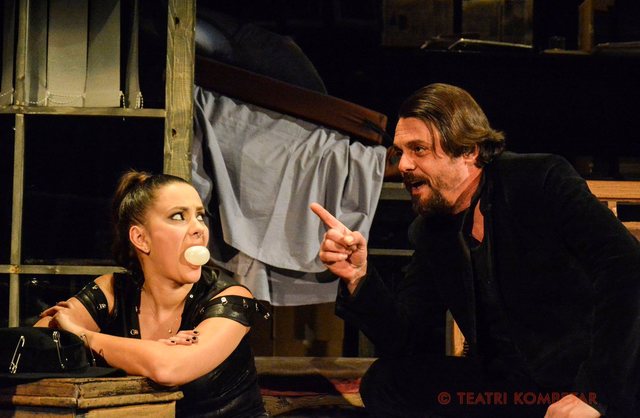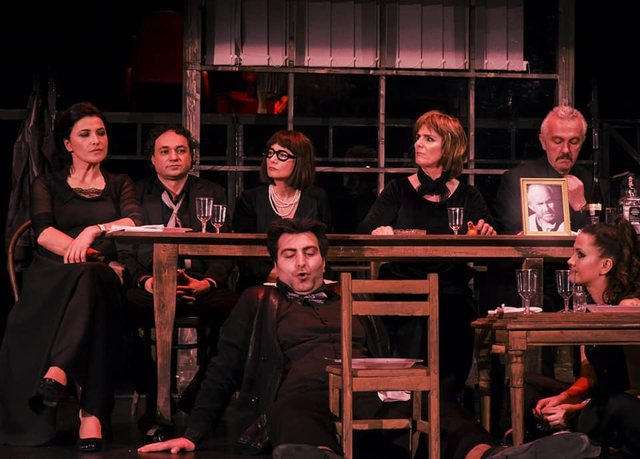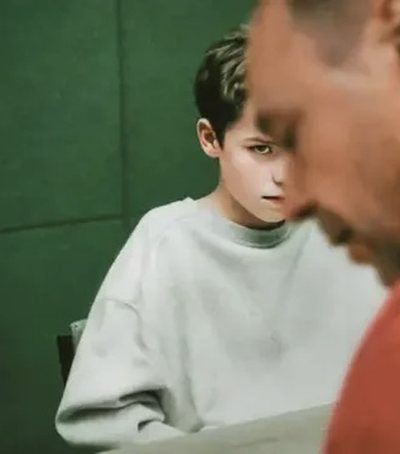
The National Theater has a lot of right in its ambition to bring the best works of world dramaturgy on stage, but a well written work that has been proven in different world scenes does not necessarily imply a precondition for success. The good cast of actors and potentials they show on the stage (as was the case with this show) is also not necessarily a prerequisite for a show to fulfill its mission. If the director does not find the formula to turn a certain work of world dramaturgy into a reflection mirror for one of the challenges of our daily life, then despite the accuracy of technical purity, despite the potency of the actors, the show will not even foster dromca katarzi, one of the basic functions and goals of the theater.
Tracy Letts's "August: Osage County" work, framed in Albanian as "August Family Portrait", has a typical American context. A tragicomic story that is built on a dramatic intrigue that develops within what the author experiences as an absurdity of everyday life with which must be faced by the US middle class. A modern tragedy that in its intrigue sums up the essence of the old tragedies, recaptured through the plague of modern life (incest, affairs, bad mouths, sexual harassment, etc.) that have already overcome the context of Western life and today affect us all. A superficial reading of the work can be trapped only within the very American context of this work, but a more cultivated reading will first draw the situations and intrigues that are very current to today's Albanian reality, ie many directorial possibilities to live on stage.

The Weston Family from Oklahoma, the subject of Tracy Letts drama, can easily become one of many of today's Albanian families tired of successive failures but also of trying to preserve their image of the world. The problem of incest, affairs and various scandals known and silenced by everyone, sexual harassment and unwillingness to report and fight it are just some of the nuances of the intrigue of this work that today have become an integral part of the Albanian daily chronicle. The Weston family is an opportunity to build an artistic reflection on all sorts of things that do not work in an Albanian family today, but those things that then emerge as a black shadow that weighs on all those affected by them.
Spiro Duni, a great name of the Albanian theater world, with this show re-proves that he is an exemplary speaker of the theater anatomy, but, despite his ambition to shake the public, the faithful reading he made of this Tracy Letts drama has been turned in the inhibitory instrument that the appearance is hindered from within. Naturally, this detail of the analysis is part of a wider and more complex debate, but it should be said that in this performance, remaining entirely faithful to the dramatic line of the work as written even the source context that the author of the work has predestined, the director has become the author of a powerlessness, encoded between images that leave the country to each other, so that we, as a public, can identify with the situation or any of the characters on stage. In some parts, the emergence seems to have a loss of rhythm and gives the impression of something prolonged, precisely because the director did not consider it necessary to explore additional formulas that would probably allow certain portions of this work to be interconnected a clearer way of life than our daily life is just as tragicomic as that of the Weston family.

Human problems are universal, little is important whether they are American or whatever, but the way people and peoples experience them are not the same. It is the director's duty to make an artistic translation, that is, make it understandable for the social context of its public, in this case of the public, the context of pains, traumas, dilemmas of certain challenges defined by the author of the work Albanian. In the theater of the free world there is no such thing as "the author does not give a solution" or "the author leaves the solution open" and similar, with which the Albanian directors themselves are not often. These are all the remains of the logic embedded in socialist realism, when artists did not dare to think of messages beyond what was assigned from above, a way of thinking that is still a shadow over Albanian theater and drama. The Tragedy of the Weston Family - The slow reversal comes from within this family, the returnees to their own enemy, the escape as their own salvation over all powerlessness from the vicious circle - is the SOLVING SOLUTION to build a specific message or finding . The fate of the Weston family is a mirror where we can easily see ourselves, our families, whether in the present or at the end of our journey, if we continue to silence the problems if we continue to cure the image even though we are rotten from within.
This show has prompted me to think that perhaps it is time for us, as theater artists, critics or merely sympathetic theater, to get rid of a little excessive technical burden on the approach of a theater profession so that it can we approach the way a show is perceived by the public, namely the intimate and intimate desire of a member of the public to identify with something that is being developed on stage. If we prevent the public from identifying what is happening on the stage then as far as the technical aspect is concerned, it is the show, it has failed in its basic mission - to serve the public and not just at the service of a small group of egocentric dressed in petite critics. As a theater fanatic, I strongly believe that directorship is not just a demonstration of technical knowledge and technical accuracy, but above all, an idea, a detailed purpose up to date, empowered with dazzling dementia of courage. Without this, there can be no real expectation that the public will be able to identify with something that is presented in a show.
The National Theater, the director and the whole choir can rightly be proud of what the "August - family portrait" performance presented, but, in my humble appreciation, taking the stage from this show, the National Theater as well as the whole the theater community must reflect on the fact that it may be time to insist on a more dynamic directing approach, an approach where the director takes full responsibility for the message he intends to convey on the stage, so as to be as frustrated as lethargy and defeat the evil money that caught us all.
(The author is a playwright and writer. This reflection is completely personal)





